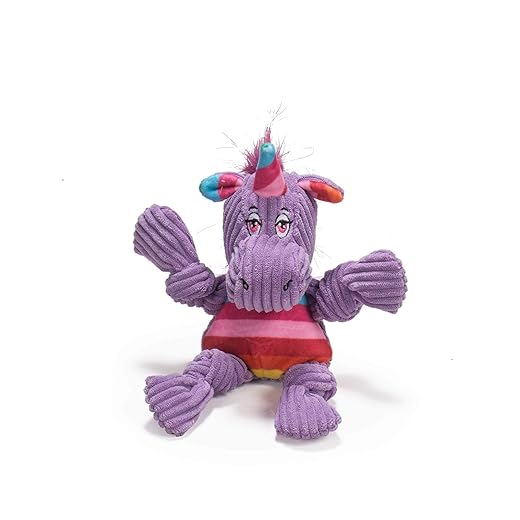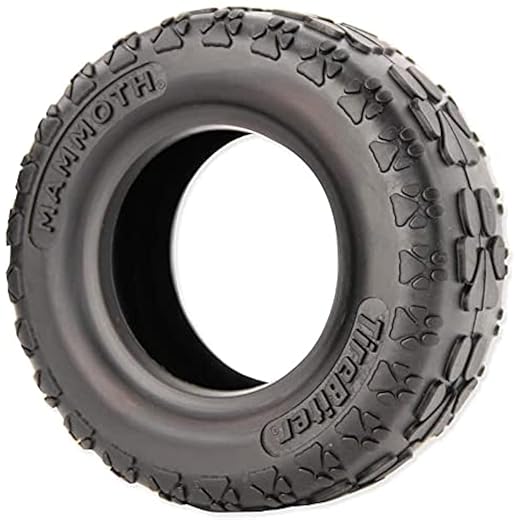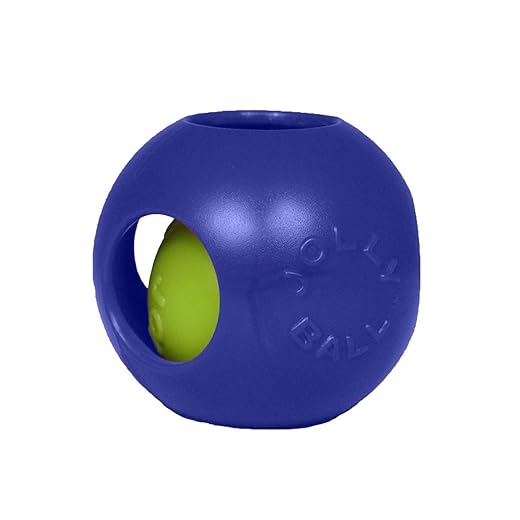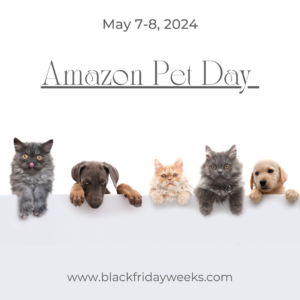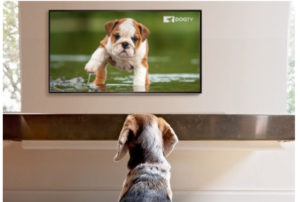A Pitbull toy refers to a toy specifically designed for Pitbull dogs, a breed known for its strength, energy, and powerful jaws. These toys are designed to withstand the strong chewing and playing tendencies of Pitbulls and provide them with safe and engaging playtime. Pitbull toys are typically made from durable materials such as rubber, nylon, or specially designed tough fabrics. They are built to be tough, long-lasting, and resistant to damage.
Pitbull toys serve multiple purposes, including providing mental stimulation, relieving boredom, promoting healthy exercise, and redirecting chewing behavior. They come in various shapes and sizes, including chew toys, interactive toys, tug toys, and puzzle toys, to cater to different play preferences and chewing styles of Pitbulls.
When choosing a Pitbull toy, it is important to select toys that are specifically labeled as “Pitbull tough” or “indestructible” to ensure they can withstand the power of your Pitbull’s jaws. It is also essential to regularly inspect the toy for any signs of wear or damage and replace it if necessary to prevent any potential hazards.
Remember, no toy is completely indestructible, so supervision is always recommended during playtime to ensure the safety of your Pitbull. Additionally, always consider the size, age, and preferences of your individual Pitbull when selecting toys to provide them with the most enjoyable and safe play experience.
What kind of toy is good for a Pitbull?
When it comes to choosing toys for Pitbulls, it’s important to prioritize durability and strength. Pitbulls are known for their strong jaws and aggressive chewing tendencies, so toys that are designed to withstand their powerful bite are ideal. Here are some types of toys that are generally suitable for Pitbulls:
- Chew Toys: Look for chew toys made from durable materials like rubber or nylon. Opt for thick and sturdy toys that can withstand heavy chewing and won’t easily break or splinter.
- Rope Toys: Rope toys are great for interactive play and can withstand tugging and chewing. Make sure to choose rope toys made from strong, thick ropes to prevent fraying or breaking.
- Kong Toys: Kong toys are popular among Pitbull owners due to their durability. These toys are made from strong rubber and can be stuffed with treats or peanut butter to provide mental stimulation and keep your Pitbull engaged.
- Interactive Toys: Consider puzzle toys or treat-dispensing toys that require your Pitbull to work for their reward. These toys provide mental stimulation and can help redirect their energy into problem-solving.
- Ball Toys: Look for tough, solid rubber balls specifically designed for powerful chewers. Avoid using tennis balls as they can quickly be destroyed by Pitbulls.
Always supervise your Pitbull while they’re playing with toys, especially if they are aggressive chewers. Regularly inspect the toys for any signs of wear or damage, and replace them if necessary to prevent any potential hazards. It’s essential to choose toys that are specifically labeled as “Pitbull tough” or “indestructible” to ensure they can withstand the strength of your Pitbull’s jaws.
What is a toy size Pitbull?
A toy-size Pitbull typically refers to a Pitbull that is smaller in size compared to the standard or regular-sized Pitbull. However, it’s important to note that there is no officially recognized toy-size variation within the Pitbull breed. Pitbulls are typically medium-sized dogs, ranging from about 17 to 21 inches (43 to 53 cm) in height at the shoulder and weighing between 30 to 60 pounds (14 to 27 kg).
Sometimes, the term “toy-size Pitbull” is used by breeders or sellers to refer to smaller Pitbulls that may not meet the standard size of the breed. These smaller dogs may be a result of breeding practices that aim to produce smaller-sized dogs, but it’s important to understand that they may not be representative of the true Pitbull breed standard.
If you are considering getting a Pitbull, it is recommended to focus on finding a reputable breeder or adopting from a reputable rescue organization. They can provide you with accurate information about the size, temperament, and health of the dog you are interested in. Remember, regardless of the size, all Pitbulls require proper training, socialization, and responsible ownership to thrive.
What do pitbulls love the most?
Pitbulls, like any other dog, have individual preferences and personalities, so their specific likes and loves can vary. However, there are a few things that many Pitbulls tend to enjoy:
- Human companionship: Pitbulls are known for their affectionate and people-oriented nature. They typically love spending time with their human family members and crave attention and interaction.
- Playtime: Pitbulls are energetic and active dogs that often have a playful and exuberant nature. They enjoy engaging in play activities such as fetch, tug-of-war, and interactive toys. Providing them with plenty of opportunities for exercise and play can help keep them mentally and physically stimulated.
- Chewing: Pitbulls often have a strong chewing instinct, so they may enjoy having appropriate chew toys to help satisfy this need. Look for durable and safe chew toys designed for strong chewers.
- Training and mental stimulation: Pitbulls are intelligent dogs that benefit from mental stimulation and training. They enjoy learning new things, so engaging them in positive reinforcement-based training sessions and providing them with puzzle toys or interactive games can be enjoyable for them.
- Affection and cuddling: Pitbulls are generally known to be affectionate dogs that form strong bonds with their human companions. They often enjoy snuggling, cuddling, and receiving affection from their loved ones.
Remember, each individual Pitbull may have their own unique preferences, so it’s essential to get to know your specific dog and provide them with activities and experiences that they enjoy and find rewarding.
How can I make my pitbull happy?
To make your Pitbull happy, consider the following tips:
- Provide regular exercise: Pitbulls are active dogs that require regular physical exercise to keep them mentally and physically stimulated. Engage them in activities like brisk walks, jogging, playing fetch, or visiting a dog park. Regular exercise helps prevent boredom and promotes their overall well-being.
- Offer mental stimulation: Pitbulls are intelligent dogs that benefit from mental stimulation. Provide them with puzzle toys, treat-dispensing toys, and interactive games that challenge their problem-solving skills. Training sessions can also be mentally stimulating and help strengthen the bond between you and your Pitbull.
- Give them plenty of attention: Pitbulls are social dogs that thrive on human companionship. Spend quality time with your Pitbull, engaging in activities they enjoy, such as playing, training, or simply cuddling. Make sure to provide them with positive attention and affection to reinforce their bond with you.
- Offer appropriate chew toys: Pitbulls have a strong chewing instinct, so it’s important to provide them with durable and safe chew toys. Choose toys specifically designed for strong chewers to prevent them from destroying household items or ingesting unsafe objects.
- Establish a routine: Dogs, including Pitbulls, benefit from having a consistent routine. Establish regular feeding times, exercise sessions, playtime, and rest periods. A routine helps provide structure and predictability, which can contribute to their overall happiness and well-being.
- Ensure a comfortable living environment: Provide your Pitbull with a comfortable and safe living environment. Offer a cozy bed, provide access to fresh water, and ensure they have a quiet and secure place to rest. Regularly clean their living area to maintain cleanliness and hygiene.
- Positive reinforcement training: Use positive reinforcement techniques, such as rewards, praise, and treats, to train your Pitbull. Positive reinforcement helps create a positive learning environment and fosters a strong bond between you and your dog.
- Regular veterinary care: Schedule regular check-ups with a veterinarian to ensure your Pitbull’s health and well-being. Vaccinations, preventive treatments for fleas and ticks, and routine health examinations are essential for their overall care.
Remember, every Pitbull is an individual, so it’s important to understand your dog’s specific needs and preferences. Pay attention to their body language and behavior to gauge their happiness and make adjustments as needed. Building a strong bond, providing a loving and stimulating environment, and meeting their physical and emotional needs will contribute to your Pitbull’s happiness.
Factors to consider when choosing the best toy for Pitbull
When choosing toys for Pitbulls, it’s important to consider their strong jaws, high energy levels, and tendency to be aggressive chewers. Here are some factors to consider when selecting the best toy for a Pitbull:
- Durability: Look for toys that are specifically designed for heavy chewers and made from tough, durable materials such as rubber, nylon, or reinforced fabric. Avoid toys that can easily be torn apart or have small parts that could be ingested.
- Size: Choose toys that are large enough to prevent your Pitbull from swallowing or choking on them. The toy should be too big to fit entirely in their mouth to ensure their safety.
- Safety: Ensure that the toy does not have any sharp edges, loose parts, or toxic materials. Avoid toys with strings, ribbons, or squeakers that can be easily removed and swallowed.
- Chewability: Opt for toys that have some give and flexibility, allowing your Pitbull to engage their natural chewing instinct without damaging their teeth or jaws. Look for toys with different textures and surfaces to provide variety.
- Interactive and engaging: Pitbulls are intelligent and active dogs, so choose toys that provide mental stimulation and promote physical activity. Interactive treat-dispensing toys or puzzle toys can keep them engaged and mentally challenged.
- Versatility: Consider toys that can be used for multiple types of play, such as tug-of-war, fetch, or solo chewing. Versatile toys can help keep your Pitbull entertained and provide different outlets for their energy.
- Supervision: No toy is completely indestructible, so always supervise your Pitbull while they are playing with toys, especially when they are new or unfamiliar. Regularly inspect the toys for any signs of wear or damage and replace them as needed.
Remember, every Pitbull is different, so observe your dog’s play style and preferences to find the toys that best suit their needs. It’s also a good idea to rotate toys regularly to keep them interesting and prevent boredom.
How often should I change Pitbull toy?
The frequency of changing Pitbull toys can vary depending on the durability of the toys and the play habits of your dog. Here are some general guidelines to consider:
- Monitor wear and tear: Regularly inspect your Pitbull’s toys for any signs of wear, damage, or weakness. If you notice fraying, torn pieces, or other signs of deterioration, it’s time to replace the toy. A damaged toy can pose a choking hazard or cause injury to your dog.
- Assess chewing behavior: If your Pitbull is an aggressive chewer or tends to destroy toys quickly, you may need to change their toys more frequently. Some Pitbulls have strong jaws and can quickly dismantle toys designed for moderate chewers. Look for toys specifically made for heavy chewers to ensure longevity.
- Rotate toys: To keep your Pitbull engaged and prevent boredom, consider rotating their toys regularly. Introduce a few toys at a time and switch them out every few days or weekly. This not only keeps the toys interesting but also helps prolong their lifespan.
- Consider toy type: Different types of toys have varying lifespans. Soft plush toys may need more frequent replacement, especially if your Pitbull likes to play rough and tear them apart. On the other hand, durable rubber toys or nylon chew bones can withstand more vigorous chewing and may last longer.
- Individual dog’s preference: Some Pitbulls may become less interested in certain toys over time, while others may have favorite toys they play with consistently. Pay attention to your dog’s preferences and adjust accordingly. If they lose interest in a toy or show little enthusiasm, it may be time to introduce new toys or retire the ones they no longer enjoy.
Ultimately, the decision to change Pitbull toys should be based on their condition, safety, and your dog’s play habits. Regularly inspecting the toys and being mindful of any signs of wear or damage will help ensure your Pitbull’s toys remain safe and enjoyable.
Do you really need a toy for Pitbull?
Yes, providing toys for your Pitbull is highly recommended. Toys serve several important purposes for Pitbulls:
- Mental stimulation: Toys help keep Pitbulls mentally stimulated and prevent boredom. Engaging toys can challenge their problem-solving skills, alleviate anxiety, and provide an outlet for their natural instincts.
- Physical exercise: Many Pitbulls are active and energetic dogs that require regular physical exercise. Interactive toys, such as fetch balls or tug ropes, can help them burn off excess energy and promote physical fitness.
- Dental health: Chewing on appropriate toys can help maintain good dental hygiene for your Pitbull. Chew toys can help remove plaque and tartar buildup, massage gums, and promote overall oral health.
- Bonding and socialization: Playing with toys can be a fun way to bond with your Pitbull and strengthen your relationship. It can also provide an opportunity for socialization if you engage in interactive play with other dogs or humans.
- Redirecting behavior: Providing appropriate toys can help redirect your Pitbull’s chewing and biting behavior from undesirable objects, such as furniture or shoes, to designated toys. This helps protect your belongings and teaches them appropriate chewing habits.
While it’s not absolutely necessary to have toys for your Pitbull, they can greatly enhance their overall well-being and provide numerous benefits. However, it’s important to choose durable and safe toys that are appropriate for your Pitbull’s size, chewing habits, and individual preferences. Always supervise your Pitbull during playtime to ensure they are using the toys safely and prevent any potential accidents or ingestion of toy parts.
You May Also Like These Deals!
Celebrate Pet Day with Our Exclusive Automatic Cat Feeder!
Are you ready to pamper your feline friend like never...
Read MoreIs DOGTV good for dogs?
DogTV is a unique television network designed specifically for dogs....
Read MoreWhy is it important to take care of pets?
Pet care is the practice of ensuring the well-being, health,...
Read MoreWhat can I feed my pitbull to gain muscle?
Feeding a Pitbull to support muscle development requires careful consideration...
Read MoreProducts recommended in the post contain affiliate links. We may receive a commission when you buy something through our posts.
Why Trust Us
You will find what you are looking for at Black Friday Weeks. From classic to luxury brands, you'll find both. We will help you to select appliances that fit your needs, budget and lifestyle. Whether you want to stop by to learn more — or plan to make a major purchase — we’ll treat you like family and assist you every step of the way. Shop with us today to receive friendly and experienced help along the way.





